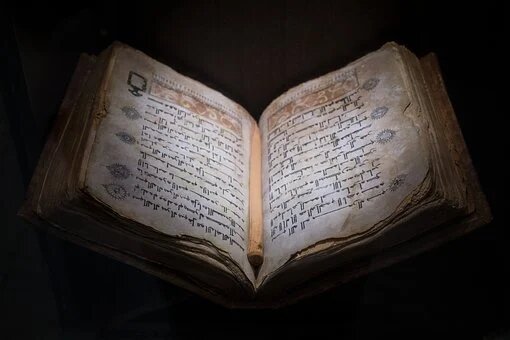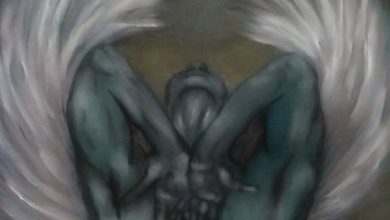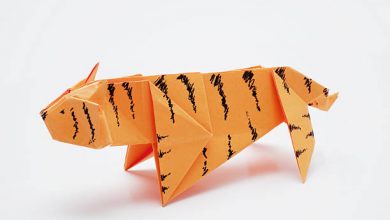
A Dialogue Between Self and Soul by W. B. Yeats is an intense exploration of the concept of soul and Self, concepts that lie at the core of, among other things, Christianity. The soul seems to be losing in this dialogue with the Self, which lies in contrast with what the morals and ethics say in the religion. Yeats foregrounds his antithetical ideologies in this poem, which are further explored in his poems such as “The Second Coming”.
A Dialogue Between Self and Soul | Summary and Analysis
In the poem, both the Self and the soul speak about their characteristics, demonstrating certain truths about themselves, and on that basis, there is a dialogue and debate going on. In “A Dialogue of Self and Soul”, Yeats reverses the typical Christian moral ideological works in which the soul bemoans what the body has done, by using the conventional Christian-based form of a dramatic poetry débat, or debate, between the Soul (or heart) and the Self (or body). Sin has sent both the body and the soul to hell. Sin is typically associated with the body because it craves pleasure, namely the pleasures of the egoistic now and not the pleasures of the future in heaven while thinking about God. In a paradoxical way, Yeats’ poem favours the body and the life infused in it, with all of its flaws, sins, and humiliations, over the morality and everlasting nature of spirit. The following poem provides an interesting twist on the common arguments between spirit and body.
There are two key sections to the poem. The Soul and the Self switch places in the first segment, with the Soul starting and ending the exchange. Yeats appears to be siding with the Soul by adding an extra stanza to it, but the second section of the poem is actually just one lengthy monologue by the Self, underlining that it chooses, has chosen, to live life in all its pains and challenges since that is what life is. The Self would be “content to live it all again.”
A Dialogue Between Self and Soul | Structure
Another foundational element of “A Dialogue of Self and Soul” is convention: The majority of the lines are written in iambic pentameter, though there are many wonderful variations. They also rhyme, though not always perfectly; the purpose is to highlight the chanting human voice, the idea of a chorus present during the debate. The rhymes are abbacddc, which is an adaptation of the ottava rima, another well-known pattern. Therefore, if this repeated pattern manages and intensifies the emotion, it also reveals that there is order in the world behind the intensity of the visual. However, that sequence is problematic: Is it forced or arranged by humanity or is it merely divine?
A Dialogue Between Self and Soul | Analysis
I
My Soul. I summon to the winding ancient stair;
Set all your mind upon the steep ascent,
Upon the broken, crumbling battlement,
Upon the breathless starlit air,
Upon the star that marks the hidden pole;
Fix every wandering thought upon
That quarter where all thought is done:
Who can distinguish darkness from the soul?
The soul starts by stating the fact that it guides the body towards the destination of the body, with all the twists and turns of life. The soul has its sight set on the “star” that “marks the hidden pole” which means it must contemplate eternity, and seek an everlasting existence, which is not in the destiny of the body. But there is a certain vagueness about this goal, one cannot determine what the soul wants to achieve. The soul also has the power to gather the thoughts of the Self into a quarter where the thoughts are collected. However, the soul asks a question of itself: can anyone distinguish the soul from its darkness?
A Dialogue Between Self and Soul | Analysis
My Self. The consecrated blade upon my knees
Is Sato’s ancient blade, still as it was,
Still razor-keen, still like a looking-glass
Unspotted by the centuries;
That flowering, silken, old embroidery, torn
From some court-lady’s dress and round
The wooden scabbard bound and wound,
Can, tattered, still protect, faded adorn.
Here, the Self is contemplating two sides of existence and two things that it craves, violence and love. The Japanese blade wrapped in an embroidered silken cloth is the expression of violence covered in love. The blade is “razor-keen”, kept in a magnificent condition. The blood that must have covered this blade is the violent existence of the Self, and the cloth, presented by a lover perhaps, represents the love that it craves despite the violence. The blade, said to be a “looking-glass” reflects back the Self’s propensity for violence, a kind of Self-discovery and introspection. The tattered embroidered cloth might stand for art that lasts beyond the creator, something that the Romantics gave importance to. However, there is a biographical element that Yeats supplied in this stanza. He was given a blade by his friend Junzo which was beautiful and in excellent condition. The Self contemplates that the body of the blade, the scabbard, might become tattered and faded, but the blade remains in the same condition, the soul lasting beyond the body. The soul might change the body multiple times but it doesn’t change how the blade is.
A Dialogue Between Self and Soul | Analysis
My Soul. Why should the imagination of a man
Long past his prime remember things that are
Emblematical of love and war?
Think of ancestral night that can,
If but imagination scorn the earth
And intellect its wandering
To this and that and t’other thing,
Deliver from the crime of death and birth.
This stanza continues the contemplation of the Self, the soul asking the Self why it is still embroiled in the questions of love and war, of death and life, of mortality and such. The soul is suggesting that the Self concentrates its imagination within itself and searches for answers, to stop the mind from wandering. There might be a suggestion of Buddhism, of the inner reflection, perhaps to exit the circle of life, and enter the higher domain.
My Self. Montashigi, third of his family, fashioned it
Five hundred years ago, about it lie
Flowers from I know not what embroidery
Heart’s purple-and all these I set
For emblems of the day against the tower
Emblematical of the night,
And claim as by a soldier’s right
A charter to commit the crime once more.
The Self deliberates further in this stanza, about the consistency and the continuity of the soul, even if it changes the Self many times. The Self does not matter, any more than the actions that the Self performs while with the soul. The soul is bound to repeat those actions, even in different selves. The embroidered cloth might get replaced but the Self will do the things that were left undone.
My Soul. Such fullness in that quarter overflows
And falls into the basin of the mind
That man is stricken deaf and dumb and blind,
For intellect no longer knows Is from the Ought, or Knower from the Known—
That is to say, ascends to Heaven;
Only the dead can be forgiven;
But when I think of that my tongue’s a stone.
The soul says that the Self, once it gets overwhelmed with the true nature and power of the soul, will become immobile and not be able to function, as it will lose all its senses. The soul is trying to warn the Self that heaven is not accessible to the Self, only to the soul. The soul will transcend the limits of the body and enter heaven. However, there is a silence where the soul should explain what lies beyond death. The Christian values and the promise of otherworldly pleasures to the soul that reaches heaven are absent from the words of the soul. The soul presents a mysterious future for the Self, which comes off as more threatening and forbidding than welcoming and tempting.
A Dialogue Between Self and Soul | Analysis
Only the Self speaks in the poem’s second section. It is a celebration of life itself, albeit, by some people’s standards, a somewhat unusual one. The Self contends that regardless of how horrible our lives have been, if we trace them back to their origin, assess the situation, and extend ourselves forgiveness, we will transcend them and achieve “blest.”
II
My Self. A living man is blind and drinks his drop.
What matter if the ditches are impure?
What matter if I live it all once more?
Endure that toil of growing up;
The ignominy of boyhood; the distress
Of boyhood changing into man;
The unfinished man and his pain
Brought face to face with his own clumsiness;
The self is relaying that the life cycle may be inescapable, but there is a certain enchantment of living a life, even if it’s a terrible existence, filled with humiliation and embarrassment. The growing up and growing old process may not bring anything but distress, but the self professes its commitment to this cycle.
The finished man among his enemies?
How in the name of Heaven can he escape
That defiling and disfigured shape
The mirror of malicious eyes
Casts upon his eyes until at last
He thinks that shape must be his shape?
And what’s the good of an escape
If honour find him in the wintry blast?
The self contemplates that existence is filled with malicious glances and horrible looks, people whose hate mirrors in your eyes. However, these experiences feel personal and universal at the same time. That there are people whose existence clashes with yours, yet you still go on living.
I am content to live it all again
And yet again, if it be life to pitch
Into the frog-spawn of a blind man’s ditch,
A blind man battering blind men;
Or into that most fecund ditch of all,
The folly that man does
Or must suffer, if he woos
A proud woman not kindred of his soul.
The self is resolute in its stance that it is “content to live it all again”, even if life brings only turmoil and throws all sorts of obstacles in its path. The imagery is muddy and dirty with the horrifying ordeal of living, yet there is a certain pride and determination in the self’s voice.
I am content to follow to its source
Every event in action, or in thought;
Measure the lot to forgive myself the lot!
When such as I cast out remorse
So great a sweetness flows into the breast
We must laugh and we must sing,
We are blest by everything,
Everything we look upon is blest.
The Self reveals the true confession of itself, that the reason it is content to follow through this life to its loop, is the ecstasy that is provided to it through the idea of remorse. The emotion of remorse gives way to the other side of emotions, the happiness, the joy. Since everyone is in the same ditch, there is nothing to do but laugh and sing. And this is the reason the self finds a will to live all over again. This moment is enough for the self to contend with the unending loop of misery.



